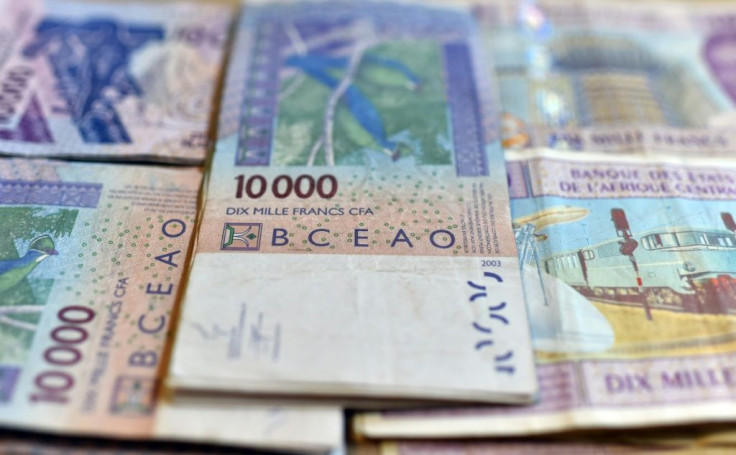Central African Summit Calls For Reflection On CFA Franc

Leaders from six central African countries on Friday called for "in-depth thinking" on the CFA franc, whose future has come into question in West Africa.
The extraordinary one-day meeting in Yaounde brought together leaders from Cameroon, Chad, the Central African Republic, Equatorial Guinea, Gabon and the Republic of Congo.
As members of the Economic and Monetary Community of Central Africa (CEMAC), the nations jointly use the CFA franc, a currency rooted in the French colonial era in western and central Africa.
The summit examined "monetary cooperation with France (and) decided to launch in-depth thinking on the conditions and framework of a new cooperation," an end-of-summit communique said.
"In this context, they tasked the Bank of Central African States (BEAC) to propose in a reasonable timeframe an appropriate blueprint leading to currency's evolution."
The CFA -- its initials come from the French words for African Financial Community -- was launched on December 26, 1945 as a "franc of the French colonies of Africa."
The money then morphed into two geographic variants, one for eight countries in western Africa and another for six in central Africa, with a combined population of 155 million people.
CFA member countries must lodge 50 percent of their reserves with the Bank of France.
The currency is essentially pegged to the euro, at a fixed rate of 655.96 CFA francs per euro.
The arrangement guarantees unlimited convertibility of CFA francs into euros, facilitates inter-zone transfers and helps price stability.
But detractors say the CFA franc is a "post-colonial" contract that prevents countries from exercising sovereignty over their currency, or which enables France to wield influence in Africa.
The summit statement did not give further details about the CFA franc's "evolution."
Chadian President Idriss Deby Itno told Cameroonian TV that it was a question of leaving the present arrangement but retaining the principle of a joint currency.
"Tomorrow, when we leave the CFA franc, we will belong to a single (currency framework)," he said.
"Our French partners are open to every possible dialogue with us. The CEMAC and BEAC institutions have been tasked with negotiating, but without haste," he said.
President Teodoro Obiang Nguema of Equatorial Guinea, meanwhile, said, "We shouldn't be (linked to) former colonial powers."
The 15 member states of the Economic Community of West African States (ECOWAS) have agreed to adopt a single currency, the "eco", as early as next year.
But prospects of earlier changes to the region's currency dramatically surfaced this month when Benin leader Patrice Talon said the western African states using the CFA franc planned to pull their reserves from the Bank of France.
"We are all agreed, unanimously, that we should put an end to this model," Talon told French broadcasters RFI and France 24 on November 14.
France has already declared that it would not object if the CFA franc countries want "ambitious reform."
Financial experts say changes could be risky if the peg to the euro is suddenly ditched.
Options range from a symbolic name change to pegging the CFA against a basket of currencies including the euro, the US dollar and Chinese yuan, thus taking Africa's main trade partners today into account.
Five of the six nations were represented in Yaounde, the Cameroonian capital, by their heads of state, while Gabon, whose President Ali Bongo Ondimba suffered a stroke last year, sent its prime minister.
© Copyright AFP 2024. All rights reserved.




















